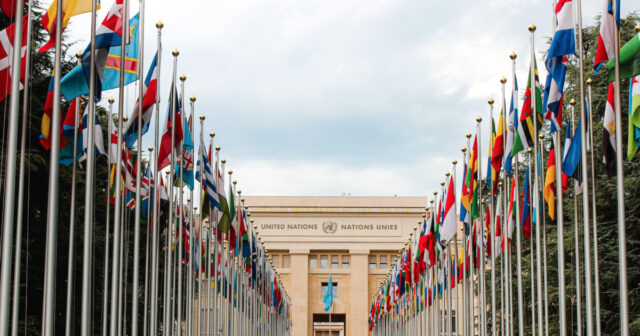By Kristina Touzenis, Managing Partner BST-Impact
Comments on the proposed DIRECTIVE OF THE EUROPEAN PARLIAMENT AND OF THE COUNCIL amending Directive 2013/34/EU, Directive 2004/109/EC, Directive 2006/43/EC and Regulation (EU) No 537/2014, as regards corporate sustainability reporting
It is important to understand that many internal violations of rights found in international instruments are dealt with by national institutions; this is why it is so important to respect the due diligence if a violation has been committed and to have effective and fair legislation, law enforcement and an impartial and effective judiciary.
In these cases the State is dealing with violations as it is supposed to – taking action to prevent and address (and redress). In these cases the national system is functioning and thus direct international responsibility (as in “liability”) for a violation will not follow as it would if the State did nothing to prevent/address/redress violations, or actively participated in them.
There is thus a responsibility to prevent/protect from wrong-doing and to act if wrongs have been done, not an expectation that e.g. murder (taking of life) will never occur. It is a question of the responsibility to have in place legislation/regulation that is effective, impartial and non-discriminatory and that is effectively implemented to create a society based on respect for fair rules.
This is what the EU and many of its MSs are doing now. Realizing the importance, power, and relevance that private sector actors have on sustainable development, environment and human rights issues, to avoid being in violation of international law, the EU and its MS are regulating what such powerful actors are doing not only indirectly within the complex web of relevant national and EU legislation and standards, but directly with legislative acts addressing the responsibility of these private actors on society and environment.
All private actors are subject to this sort of “horizontal” effect of international law – an individual cannot expect impunity from murder or kidnapping (right to life; right to freedom of movement) or from unlawfully evicting someone from their property (right to housing and a decent standard of living). The implementation of these (and every other right directly enshrined in Human Rights Conventions or derived from other international law) is the obligation of the States that have ratified such Conventions and are bound by said international law, and the first thing they do to live up to these obligations is to enact legislation that protects all of us from their violations and ensures redress if we experience violations. Up until recently, there must have been a presumption that detailed legislation targeting investors and companies specifically was either not desirable or not necessary. Not so now.
The notion that this is the EU putting the “responsibility” of respecting people and climate “on” the investor community or the private sector actors concerned is erroneous.
The EU has, as a group of sovereign States all with obligations they have entered upon ratifying Treaties on e.g. human rights and labour standards, the obligation to guarantee adequate legislation for all subjects that ensures that any violation of rights of individuals or groups of individuals can be addressed at national/regional level so as not to be in violation of treaty obligations.
Putting the obligation on a company to ensure that they guarantee decent labour is no different from putting the legal obligation on me not to murder my fellow man. Putting the obligation on investors to actually ask questions of their investee on how they treat people and planet and having in place sanctions if they either do not do their due diligence, or actively engage in violation of e.g. labour rights when they invest in companies who operate with perceived impunity when exploiting people is no different than obliging me not to sign false cheques.
I have a certain power over others and am accountable for my actions to the law – the obligation being put on investors and private actors is proportionate to their power over others.
It may be new. But it is not the States or the EU as a regional body “putting THEIR responsibility on others” it is the competent legislative body doing what they are supposed to and requiring relevant entities to follow the law.
The proposal is intended to respect the fundamental rights enshrined – and adheres to the principles stated – in the Charter of Fundamental Rights of the European Union.
It is specified that it will have an indirect positive impact on fundamental rights, given that more stringent reporting requirements can influence corporate behaviour for the better.
This should not be understood as a “side effect” but it is necessary for the legislator, in this case the EU, to make the point that this is legislation which will regulate the behaviour of non-state actors towards other non-state actors, and thus the effect on human rights is that individuals and communities will benefit from the regulation through the responsibility of private actors to act in accordance with law, not directly from State action.
It should serve to make companies more aware of fundamental rights and positively influence how they identify and manage actual and potential adverse impacts on fundamental rights.
It ought to also make companies realize that in order to live up to their obligations of effective implementation and respect, they will need the expertise of human rights experts and labour law experts as well as professionals with governance experience.
The fact that this should also increase capital flows to companies that respect fundamental rights, and in general make companies more accountable for their impact on fundamental rights, is not to be underestimated nor overlooked.
More articles on human right on investESG.eu.
| about
Kristina Touzenis is the Managing Partner of BST Impact. A lawyer and a recognized leader in the effective and concrete operationalization of international human rights standards and principles in complex settings worldwide requiring long-term engagement with a multitude of stakeholders, form both the public and private sectors. She has more than 20 years of experience in advocacy, human rights reporting, monitoring, and evaluating as well as in policy making and negotiating at national, regional, and global level. Kristina founded BST Impact with two other partners in mid 2020, together with a pool of experts to help companies and investors to effectively operationalize ESG criteria, SDGs, international norms and the Business and Human Rights agenda into their respective sustainable business strategies, investment processes and risk assessment management systems. Previously, Kristina created the International Law Unit at the International Organization for Migration – IOM, the UN Agency for Migration and served as Head of the Unit from 2011 to 2020. She engaged with government counterparties on legislation development and review as well as with other Agencies within the UN common system, on advocacy and implementation of programmes worldwide. Prior to her appointment at the IOM HQ, Kristina worked from 2006 to 2011 in the IOM Regional Office for the Mediterranean Region, on translating international norms and standards into practice on the ground and from 2002 to 2006 on implementing children’s rights in the Mediterranean Region for an NGO.
| All opinions expressed are those of the author. investESG.eu is an independent and neutral platform dedicated to generating debate around ESG investing topics.








